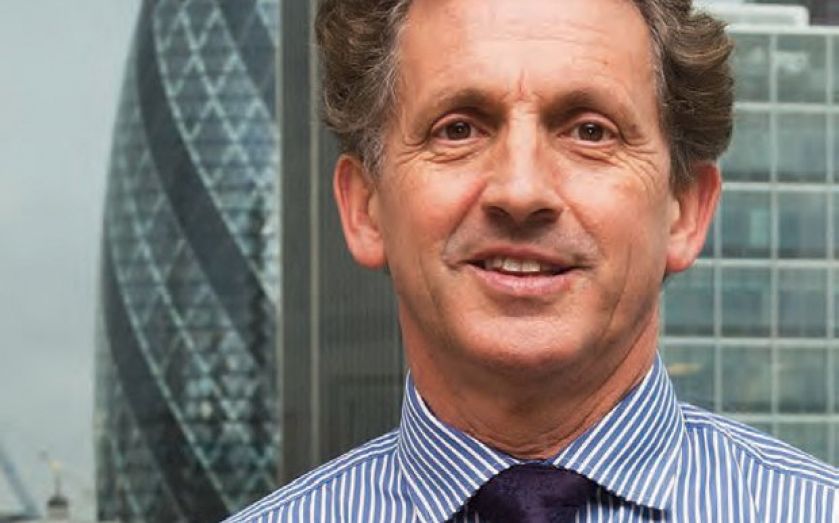| Updated:
2014 City A.M. awards: Legal & General CEO Nigel Wilson is the insurance boss with big ideas

The Legal & General chief exec, City A.M.’s Business Personality of the Year.
His hero is Aneurin Bevan, the firebrand post-war Labour minister and architect of the NHS. His career was inspired by a quotation from political theorist Sir Isaiah Berlin on the importance of searching after the common good. And when I meet Nigel Wilson, group chief executive of the FTSE 100 finance giant Legal & General, and winner of this year’s City A.M. Business Personality of the Year Award, a copy of Austerity Britain: 1945-51, by historian David Kynaston, is open on the table in his office. “We are living in Austerity Britain again,” Wilson says. “We solved it 70 years ago and we need to solve it again.” Like the big thinkers of that era, Wilson believes Britain needs profound change – and he has a plan to deliver it.
PATH TO POWER
Since taking on the top job at L&G in 2012, he has come out against HS2, QE (“designed by the rich, for the rich”), and the mansion tax, and said Britain shouldn’t fear leaving the EU. He is now calling for politicians to get serious about the housing crisis, and wants fundamental changes to the fabric of the welfare state (Beveridge 2.0, he calls it). His plan would transform the system into a contributory model, using the plumbing of auto-enrolment to address a looming fiscal squeeze and restore personal accountability to benefits. There’s a degree of enlightened self-interest behind this, given the opportunities for L&G to provide more protection products. But it’s also motivated by fairness.
Unlike many of his peers, Wilson thinks it’s “obvious” that he should talk directly to the people, to give clarity on his company’s views (though he isn’t yet ready to join Twitter). But while he says business leaders have a duty to speak out on matters that concern them, Wilson doesn’t think there is anything particularly original about what he has to say. “I’m stealing other people’s ideas from history.”
Yet Wilson’s path to the top says something of his originality. A Kennedy Scholar, he completed a PhD at MIT and reads voraciously. It was the chance to put his ideas into action that motivated him to leave academia. This was a foggy vision when he joined McKinsey (he’d never heard of it, and turned up for interview in a “funky” wedding suit). After leaving the management consultancy, he took on a succession of positions at the likes of Dixons, Stanhope Properties and Guinness Peat Aviation, guided by mentors, including Stanley Kalms and Canary Wharf developer Paul Reichmann.
RESILIENCE
His time at the head of L&G has seen the pensions, insurance, asset management and direct investment firm buffeted by headwinds. The announcement that people would no longer have to buy annuities sent its share price tumbling, but Wilson is unbowed. “Resilience is an underestimated asset, on an individual and business level,” he says. “If we get blown off course on one opportunity… we’ll accelerate in other areas.”
Indeed, Wilson sees a surfeit of opportunities in Britain and beyond – and not just for his firm. Legal & General’s strategy is guided by five macro themes, heavily influenced by his early-morning emails to staff on the weekend. One of these themes, bank retrenchment, speaks to new regulation preventing banks from bearing the full weight of financing growth and infrastructure.
But having committed L&G to investing £15bn of “slow money” (long-term investment) into UK projects, Wilson is frustrated that others aren’t following suit: “We’ve got very low long-term interest rates, very low inflation… an enormous global labour pool, amazing technology and yet people are nervous about investing.” So alongside a series of direct investments by L&G in private rental, urban regeneration and care homes, he wants its “family and friends”, 3,200 institutional and sovereign wealth clients, to use his company as a conduit to drive further massive investment in housing, transport, even fracking.
OBSTACLES
Yet there is an obstacle in the way of his ambitions: “politics”. Wilson has fantastic discussions with politicians, he says, but they’re “constrained by the political party they’re in”. We’ve seen “a failure of the political process to deliver the social and economic outcomes people thought they were going to get”. Despite rampant house price inflation, potential blackouts next year, problems in education, and the desperate need for new runways, we’re getting “focus group driven political solutions”, not long-term fixes to the big issues, such as in his beloved post-war period.
For all this, Wilson is electrifyingly optimistic about Britain. Devolution to cities like Manchester has huge potential to drive growth. Nimbyism against development “is a problem”, but he thinks opinion is shifting, particularly when people see the benefits of ideas like L&G’s plans for digitally enabled retirement villages. Foreign investors also have a “natural bias” towards the UK, he says. “It’s democratic, the transport links in London are good, the sporting life, the theatre is fantastic, the intellectual freedoms to speak your own mind are just wonderful,” he chuckles.
Investors have warmed to Wilson and L&G’s share price has risen by 68 per cent over the past two years. But it’s clear he would also like to be judged by another metric: can he change Britain for the better?
CV: NIGEL WILSON
■ Kennedy Scholar and PhD from MIT.
■ Worked at McKinsey, before moving to Dixons in 1986 as commercial director.
■ Made managing director at Stanhope Properties in 1988. Became corporate chief executive of Guinness Peat Aviation in 1992.
■ Held senior positions at Waste Management International, Viridian Group, and United Business Media.
■ Made finance director of Legal & General in 2009; promoted to group chief executive in 2012.